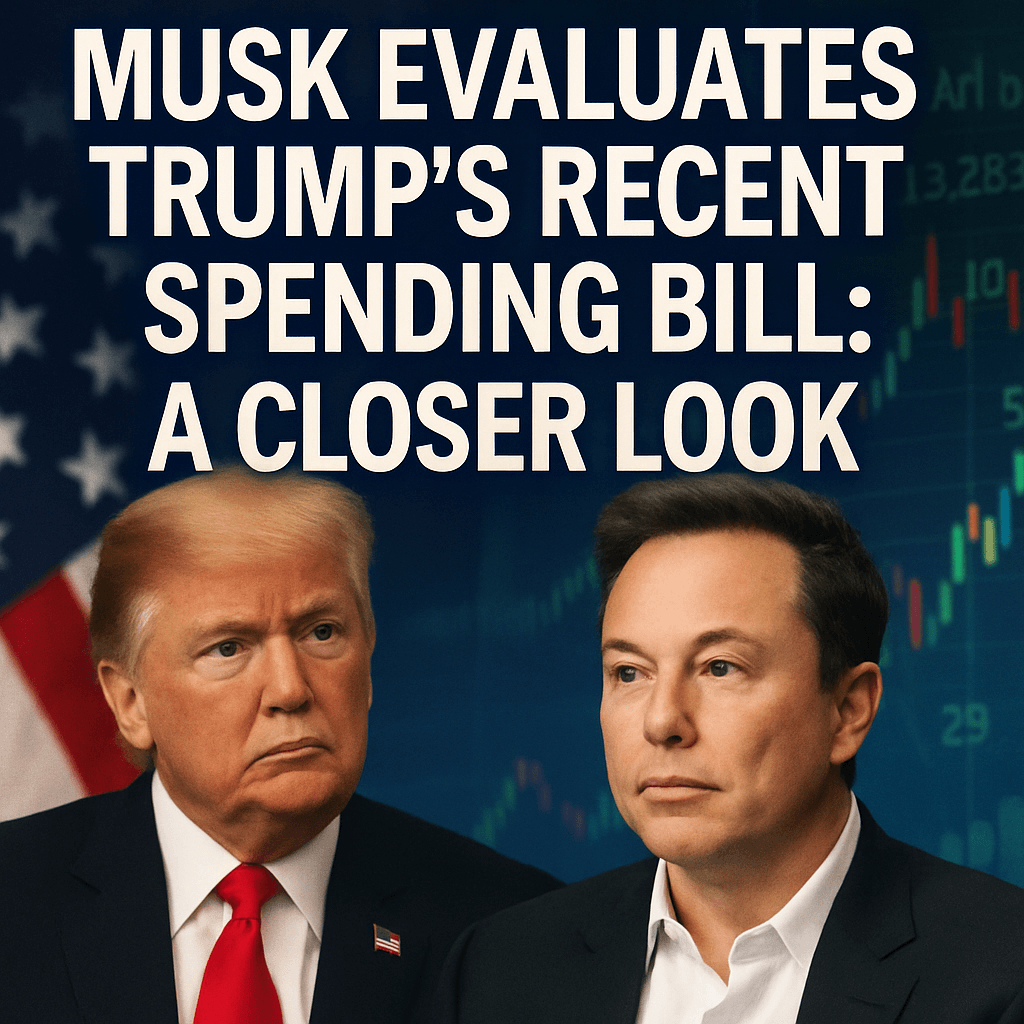Musk Evaluates Trump’s Recent Spending Bill: A Closer Look

Elon Musk has publicly criticized President Donald Trump’s newly proposed spending bill, often referred to as the “big, beautiful bill.” Musk characterized this legislative proposal as “massive, outrageous, pork-filled,” expressing his discontent over the implications it may have for the U.S. budget deficit and public debt.
Musk’s Shift from Administration Insiders to Critic
Just one week prior to his criticism, Musk concluded his role as the unofficial head of the Department of Government Efficiency (DOGE). Initially, Musk claimed that DOGE would realize around $2 trillion in savings through government reforms. However, he later revised these figures downward, acknowledging that the agency might only save about $1 trillion.
Musk’s tenure lasted approximately 130 days, during which he argued that DOGE was held responsible for numerous cuts that were outside of its purview. “We have nothing to do with that,” he commented during a press conference on May 30, emphasizing that accusations against DOGE had become unfounded.
The “One Big Beautiful Bill Act” Overview
Approved by the House on May 22, Trump’s significant spending proposal outlines over $5 trillion in tax cuts, primarily aimed at individuals and businesses. Citing estimates from the Joint Committee on Taxation, the bill proposes substantial reallocations in federal funding, shifting responsibilities such as the Supplemental Nutrition Assistance Program (SNAP) partly to state governments.
- Tax Cuts: The bill promises the largest tax reductions, eliminating taxes on tips, overtime, and Social Security for seniors—policies that Trump claims received overwhelming support from voters.
- Healthcare Requirements: New work requirements for Medicaid are included, purportedly aiming to reduce waste and optimize resource allocation.
- Border Security: The legislation allocates $25 billion for various border security measures, including funding for a proposed missile defense shield, labeled as the “Golden Dome for America.” Additionally, it includes provisions for deporting up to one million migrants and increasing personnel at the border.
- Higher Education Taxes and Pension Cuts: The bill also introduces taxes on university endowments and calls for reforms to student loan systems, alongside proposed cuts to federal employee pensions.
Economic Implications of the Proposed Spending Plan
While Trump asserts that the bill represents an unprecedented reduction in mandatory spending, Musk challenges this narrative, positing that the spending plan is far from fiscally prudent. He argues that it could exacerbate the federal budget deficit, projecting an increase to approximately $2.5 trillion. Musk described the plan as a burden to American citizens, suggesting it could lead to an unsustainable debt trajectory.
“Congress is making America bankrupt,” Musk remarked on his platform, X, echoing concerns among economists about the viability of such large fiscal changes in a rapidly changing economic landscape.
Public and Political Response
The political and public reaction to Musk’s statements remains mixed. Supporters of Trump’s bill argue that the tax cuts could stimulate economic growth, while critics raise concerns about potential long-term impacts on the national deficit and critical social services. The White House has yet to issue a formal response to Musk’s criticisms.
Financial analysts suggest we look carefully at the interplay between tax policy and budget management. Often, aggressive tax cuts can lead to a short-term boost in consumer spending, yet they carry risks regarding fiscal sustainability, particularly if they lead to ballooning deficits.
Conclusion: A Tense Discourse Ahead
As the debate over Trump’s spending proposal continues, it raises fundamental questions about fiscal responsibility and the future direction of U.S. economic policies. With influential figures like Musk entering the discourse, the implications of this spending bill will likely be dissected in various political, economic, and social contexts for years to come. The stakes are high, and the response from both sides of the aisle could dictate the future of bipartisan support in Congress, especially amid fluctuating economic conditions.